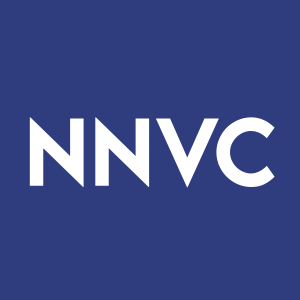Clinical Trial Demonstration of Safety and Tolerability of NV-CoV-2 Has Implications Beyond COVID Treatment, Explains NanoViricides - NV-387 Could be As Revolutionary as Antibiotics
SHELTON, CT / ACCESSWIRE / February 1, 2024 / NanoViricides, Inc. (NYSE American:NNVC) (the "Company"), a leader in the development of highly effective antiviral therapies based on a novel nanomedicines technology, explains that the demonstration of strong safety and tolerability of NV-CoV-2 oral drug products has implications beyond COVID, setting the Company up for long term success and growth.
NV-CoV-2 drugs contain the active pharmaceutical ingredient NV-387. NV-387 is an ultra-broad-spectrum antiviral nanomedicine that is designed by copying a common host-side chemical signature used by viruses to effectively infect and cause disease in the human and animal hosts.
"We believe that the strong demonstration of safety and tolerability in the clinical trial sets NV-387 on a path of long-term success against many viruses," said Dr. Anil R. Diwan, President, Executive Chairman, co-Founder and co-Inventor, adding, "We believe nanoviricides platform is now on a solid footing to revolutionize treatment of antiviral infections just as antibiotics like penicillin revolutionized treatment of bacterial infections."
- The Susceptible Viruses Cannot Escape NV-387 Even As They Continue to Evolve in the Field Enabling Us to Anticipate that Nanoviricide Drugs Could Have Many Decades Long "Life of Service".
No matter how much the virus changes, it continues to use the same host-side signature to bind to and cause infection in the hosts, and thus the nanoviricide would be anticipated to continue to be effective.
Thus NV-387 and other antiviral drugs designed on the nanoviricides platform can be expected to have a long duration of effective usability against the target viruses, reaching into several decades, similar to antibiotics, but in stark contrast with current antiviral approaches.
The nanoviricide technology involves copying the invariant and essential host-side signature and , using this signature, building a direct-acting antiviral that destroys the virus. This design feature of nanoviricides solves the most intractable issue in antiviral response, that of viruses escaping the vaccines, antibodies, and small chemical drugs.
- Ultra-Broad-Spectrum Antiviral Nanomedicines Enabled by the Nanoviricides Platform Would Open Up Very Large Market Sizes.
In addition, NV-387 is designed using the host-side signature that over90% of human pathogenic viruses use for creating a successful infection in the human or animal hosts (see below). This means NV-387 is likely to be active against a large number of viruses and could be sufficiently active against many of them to become a successful clinical drug against them.
In fact, we have already demonstrated that NV-387 is highly effective in preclinical studies against lethal RSV infection as well as against lethal Smallpox-like virus infections.
There is no drug for general treatment of RSV infection at present, enabling NV-387 to be a candidate for this$1.8 Billion to$8 Billion annual market size as estimated by GrowthPlus Reports[1].
There is a strong interest in developing additional antivirals against Smallpox, because of the potential bioterrorism threat. It is known that Smallpox virus can escape the approved drug tecovirimat by a single point mutation.
COVID is here to stay, and even as the pandemic has largely subsided, the need for COVID therapeutics is in the range of tens of billions of dollars. Long COVID also remains a problem that effective antiviral such as NV-387 could make a difference in.
NV-387 is designed to mimic the host-side signature called "Sulfated Proteoglycans" ("S-PG"). This signature is used by over90% of human pathogenic viruses, a very long list indeed. Success against a few of these viruses could build NV-387 into a drug that targets over$20 Billion market size.
- The Strong Safety of NV-387 Is Expected to Enable Its Use Across All Patients.
The strong safety and tolerability of NV-387 demonstrated in human clinical trial implies that it can be used:
(i) across all ages from pediatrics to seniors;
(ii) irrespective of co-morbidities such as diabetes, other pre-existing diseases, or immune compromised status of the individual;
and (iii) at all levels of disease severity, from mild/moderate to severe to very severe (hospitalized patients).
This capability of NV-387 is analogous to the highly successful antibiotics against bacteria.
In contrast, currently available antiviral drugs have strong limitations on the patient populations that they can be used in. For example, of the two remaining approved drugs for treatment of COVID, Paxlovid which is given orally, is not indicated for the treatment of COVID-19 in patients without a risk factor for progression to severe COVID-19, whereas Remdesivir can only be used in hospitalized cases.
Antibiotics caused a major revolution in how we treat bacterial infections, with the discovery of the broad-spectrum antibacterial, penicillin. Penicillin attacks the chemical signature common to whole classes of bacteria. Thereby it attacks the bacterial surface and causes dismantling of the bacteria.
Analogously, NV-387 uses a common feature to which a large number of viruses bind (see below). By displaying this feature on top of the "shape-shifting" nanoviricide polymeric micelle, NV-387 is designed to attack and dismantle the viral particle. This is what gives NV-387 the broad-spectrum antiviral capabilities.
The success of penicillin led to an explosion in development of antibacterials that use the same mechanism of action and provide additional benefits, stronger activity against certain bacteria and oral administration amongst them.
In fact, the world continues to use amoxicillin to treat most pediatric and adult bacterial infections to this day, some 65 years since its discovery in 1958! This durability is a direct result of the fact that most of the bacteria it attacks have not escaped the drug and have remained susceptible even after such a long time of common use.
We note that we have been able to develop NV-387 already for oral administration, as well as for injectable and inhalation formulations to enable many modes of use.
This comparison of features of nanoviricides technology platform and, in particular, NV-387, with the revolutionary antibiotics development against bacteria argues that NanoViricides is now on a solid footing to revolutionize treatment of antiviral infections.
NanoViricides, Inc. (the "Company") (www.nanoviricides.com) is a clinical stage company that is creating special purpose nanomaterials for antiviral therapy. The Company's novel nanoviricide® class of drug candidates are designed to specifically attack enveloped virus particles and to dismantle them. Our lead drug candidate is NV-CoV-2, that contains the active pharmaceutical ingredient ("API") NV-387, for the treatment of COVID caused by SARS-CoV-2 coronavirus. NV-CoV-2 in Phase 1a/1b human clinical trials for evaluation of safety and tolerability in healthy volunteers and COVID patients, as well as initial indications of effectiveness in COVID patients.
The same API, NV-387, was recently demonstrated to be active against RSV as well as against ectromelia virus, a mouse model virus used for smallpox drug development.
Our other advanced candidate is NV-HHV-1 for the treatment of Shingles.
The Company cannot project exact dates for the regulatory activities in progressing its drug candidates because of the Company's significant dependence on external collaborators and consultants.
The Company is currently focused on advancing NV-CoV-2 through Phase I/II clinical trials.
NV-CoV-2 is the Company's nanoviricide drug candidate for COVID. NV-CoV-2-R is another drug candidate for COVID that is made up of NV-CoV-2 with Remdesivir, an already approved drug, encapsulated within its polymeric micelles. Remdesivir is developed by Gilead. The Company has developed both of its own drug candidates NV-CoV-2 and NV-CoV-2-R independently.
The Company is also developing a broad pipeline of drugs against a number of viruses, with preclinical safety and effectiveness successes achieved already in many cases. NanoViricides' platform technology and programs are based on the TheraCour® nanomedicine technology of TheraCour, Inc., which TheraCour licenses from AllExcel, Inc. NanoViricides holds a worldwide exclusive perpetual license to this technology for several drugs with specific targeting mechanisms for the treatment of the following human viral diseases: Human Immunodeficiency Virus (HIV/AIDS), Hepatitis B Virus (HBV), Hepatitis C Virus (HCV), Rabies, Herpes Simplex Virus (HSV-1 and HSV-2), Varicella-Zoster Virus (VZV), Influenza and Asian Bird Flu Virus, Dengue Viruses, Japanese Encephalitis Virus, West Nile Virus, Ebola/Marburg Viruses, and Coronaviruses. The Company intends to obtain a license for poxviruses, enteroviruses, RSV and other viruses that it engages into research for, if the initial research is successful. TheraCour has not denied any licenses requested by the Company to date. The Company's business model is based on licensing technology from TheraCour Pharma Inc. for specific application verticals of specific viruses, as established at its foundation in 2005.
Disclosure Statement
This press release contains forward-looking statements that reflect the Company's current expectation regarding future events. Actual events could differ materially and substantially from those projected herein and depend on a number of factors. Certain statements in this release, and other written or oral statements made by NanoViricides, Inc. are "forward-looking statements" within the meaning of Section 27A of the Securities Act of 1933 and Section 21E of the Securities Exchange Act of 1934. You should not place undue reliance on forward-looking statements since they involve known and unknown risks, uncertainties and other factors that are, in some cases, beyond the Company's control and that could, and likely will, materially affect actual results, levels of activity, performance or achievements. The Company assumes no obligation to publicly update or revise these forward-looking statements for any reason, or to update the reasons actual results could differ materially from those anticipated in these forward-looking statements, even if new information becomes available in the future. Important factors that could cause actual results to differ materially from the company's expectations include, but are not limited to, those factors that are disclosed under the heading "Risk Factors" and elsewhere in documents filed by the company from time to time with the United States Securities and Exchange Commission and other regulatory authorities. Although it is not possible to predict or identify all such factors, they may include the following: demonstration and proof of principle in preclinical trials that a nanoviricide is safe and effective; successful development of our product candidates; our ability to seek and obtain regulatory approvals, including with respect to the indications we are seeking; the successful commercialization of our product candidates; and market acceptance of our products. In particular, as is customary, the Company must state the risk factor that the path to typical drug development of any pharmaceutical product is extremely lengthy and requires substantial capital. As with any drug development efforts by any company, there can be no assurance at this time that any of the Company's pharmaceutical candidates would show sufficient effectiveness and safety in human clinical trials to lead to a successful pharmaceutical product, including our coronavirus drug development program.
Contact:
NanoViricides, Inc.
info@nanoviricides.com
Public Relations Contact:
MJ Clyburn
TraDigital IR
clyburn@tradigitalir.com
[1] https://finance.yahoo.com/news/respiratory-syncytial-virus-rsv-therapeutics-093200835.html?guccounter=1&guce_referrer=aHR0cHM6Ly9kdWNrZHVja2dvLmNvbS8&guce_referrer_sig=AQAAAJXyjZT5Eielym71qZ0IBGYvgi3hzLSE58E-lHgXYBqe05twy3ZebjDbrt-
SOURCE: NanoViricides, Inc.
View the original press release on accesswire.com







